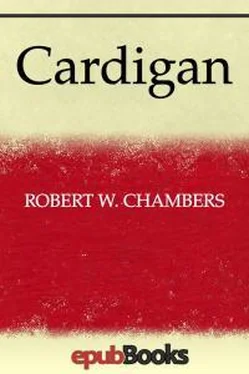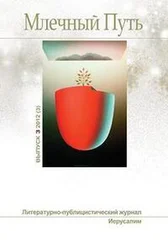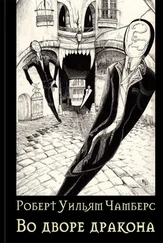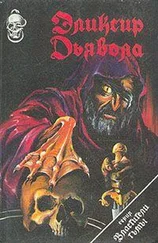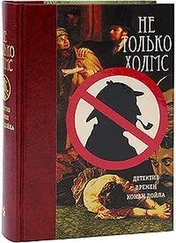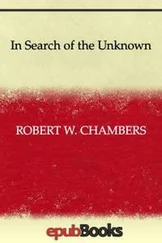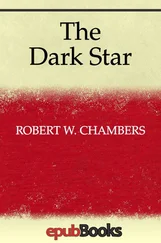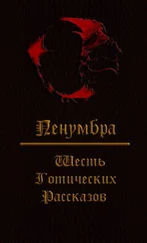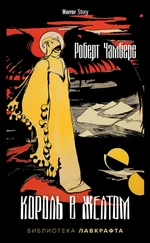Роберт Чамберс - Cardigan
Здесь есть возможность читать онлайн «Роберт Чамберс - Cardigan» весь текст электронной книги совершенно бесплатно (целиком полную версию без сокращений). В некоторых случаях можно слушать аудио, скачать через торрент в формате fb2 и присутствует краткое содержание. Год выпуска: 2014, Издательство: epubBooks Classics, Жанр: Историческая проза, на английском языке. Описание произведения, (предисловие) а так же отзывы посетителей доступны на портале библиотеки ЛибКат.
- Название:Cardigan
- Автор:
- Издательство:epubBooks Classics
- Жанр:
- Год:2014
- ISBN:нет данных
- Рейтинг книги:3 / 5. Голосов: 1
-
Избранное:Добавить в избранное
- Отзывы:
-
Ваша оценка:
- 60
- 1
- 2
- 3
- 4
- 5
Cardigan: краткое содержание, описание и аннотация
Предлагаем к чтению аннотацию, описание, краткое содержание или предисловие (зависит от того, что написал сам автор книги «Cardigan»). Если вы не нашли необходимую информацию о книге — напишите в комментариях, мы постараемся отыскать её.
Cardigan — читать онлайн бесплатно полную книгу (весь текст) целиком
Ниже представлен текст книги, разбитый по страницам. Система сохранения места последней прочитанной страницы, позволяет с удобством читать онлайн бесплатно книгу «Cardigan», без необходимости каждый раз заново искать на чём Вы остановились. Поставьте закладку, и сможете в любой момент перейти на страницу, на которой закончили чтение.
Интервал:
Закладка:
A moment later a man on horseback rode out of our stables at a gallop and clattered away down the hill. I listened for a moment, then thought of other things.
Chapter III
At late candle–light, Sir William still tarrying, I went to the north block–house, where Mr. Duncan, the lieutenant commanding the guard, received me with unusual courtesy, the reason of which I did not at the time suspect.
"An express from Sir William has at this moment come in," said he. "Sir William is aware that a belt–bearer from Virginia awaits him."
"How could Sir William, who is at Castle Cumberland, know that?" I began, then was silent, as it flashed into my mind that Mistress Molly had sent an express to Sir William as soon as I had told her about the strange Cayuga. That was the galloping horseman I had heard.
Pondering and perplexed, I looked up to find Mr. Duncan smiling at me.
"I understand," said he, "that Sir William is pleased to approve your conduct touching the strange Cayuga."
"How do you know?" I asked, quickly, my heart warming with pleasure.
"I know this," said Mr. Duncan, laughing, "that Sir William has left something for you with me, a present, in fact, which I am to deliver to you on the morrow."
"What is it, Mr. Duncan?" I teased; but the laughing officer shook his head, retiring into the guard–room and pretending to be afraid of me.
The soldiers, lounging around the settles, pipes between their teeth, looked on with respectful grins. Clearly, even they appeared to know what Sir William had sent to me from Castle Cumberland.
As I stood in the guard–room, eager, yet partly vexed, away below in the village the bell in the new stone church began to ring.
"What is that?" I asked, in surprise.
The soldiers had all risen, taking their muskets from the racks, straightening belts and bandoleers. In the stir and banging of gun–stocks on the stone floor, my question perhaps was not heard by Mr. Duncan, for he stood silent, untwisting his sword knots and eying the line which the sergeant, who carried the halberd, was forming in the room.
A drummer and a trumpeter took station, six paces to the right and front; the sergeant, at a carry, advanced and saluted with, "Parade is formed, sir."
"'Tention!" sang out Mr. Duncan. "Support arms! Carry arms! Trail arms! File by the left flank! March!" And with drawn claymore on his shoulder he passed out into the starlight.
I followed; and now, standing by the block–house gate, far away in the village I heard the rub–a–dub of a drum and a loud trumpet blowing.
Nearer and nearer came the drum; the trumpet ceased. And now I could hear the tramp, tramp, tramp of infantry on the hill's black crest.
"Present arms!" cried Mr. Duncan, sharply.
A dark mass which I had not supposed to be moving, suddenly loomed up close in front of us, taking the shape of a long column, which passed with the flicker of starlight on musket and belt, tramp, tramp, tramp to the ringing drum–beats.
Then our drum rattled and trumpet sang prettily, while Mr. Duncan rendered the officer's salute as a dark stand of colours passed, borne furled and high above the slanting muskets.
Baggage wains began to creak by, great shapeless hulks rolling in on the black ocean of the night, with soldiers half asleep on top, and teamsters afoot, heads hanging drowsily and looped raw–hides trailing.
The last yoke of oxen passed, dragging a brass cannon.
"'Tention!" said Mr. Duncan. "Support arms! Trail arms! 'Bout face! By the right flank, wheel! March!"
Back into the block–house filed the guard, the drummer bearing his drum flat on his hip, the trumpeter swinging his instrument to his shoulder–knots.
Mr. Duncan sent his claymore ringing into the scabbard, wrapped his plaid around his throat, and strolled off towards the new barracks, east of the Hall.
"What troops were those, sir?" I asked, respectfully.
"Three companies of Royal Americans from Albany," said he. Then, noticing my puzzled face, he added, "There is to be a big council fire held here, Master Cardigan. Did you not know it?"
"No," said I, slowly, reluctant to admit that I had not shared Sir William's confidence.
"Look yonder," said Mr. Duncan.
Far out in the pale starlight, south and west of the Hall, I saw fires kindled, one by one, until the twinkle of their lights ran for a mile across the uplands. On a hill in the north a signal fire sent long streamers of flame straight up into the sky; other beacons flashed out in the darkness, some so distant that I could not be certain they were more than sparks of my imagination.
"It is the Six Nations gathering," said Mr. Duncan. "We expect important guests."
"What for?" I asked.
"I don't know," said Mr. Duncan, gravely. "Good–night, Mr. Cardigan."
"Good–night, sir," I said, thoughtfully; then cried after him, "and my present, Mr. Duncan?"
"To–morrow," he answered, and passed on his way a–laughing.
I walked quickly back to the Hall, where I encountered Esk and Peter, well bibbed, cleaning the last crumb from their bowls of porridge.
"Did you see the soldiers?" cried Esk, tapping upon his bowl and marching up and down the hallway.
"Look out of the back windows," added Peter. "The Onondaga fires are burning on the hills."
"Oneidas," corrected Esk.
"Onondagas," persisted Peter, smearing his face with his spoon to lick it.
"Where is Silver Heels?" I asked.
Mistress Molly came into the hall from the pantry, keys jingling at her girdle, and took Peter by his sticky fingers, bidding Esk follow.
"Bed–time," she said, with her pretty smile. "Michael, Felicity is being dressed by Betty. If Sir William does not return, you will dine with Felicity alone; and I expect you to conduct exactly like Sir William, and refrain from kicking under the table."
"Yes, Aunt Molly," said I, delighted.
Esk and Peter, being instantly hustled bedward, left lamenting and asserting that they too were old enough to imitate Sir William.
Silver Heels, with her hair done by Betty, and a blue sash over her fresh–flowered cambric, passed them on the stairs coming down, pausing to wish Mistress Molly good–night, and to slyly pinch fat Peter.
"Felicity," said Mistress Molly, "will you conduct as befits your station?"
"Oh la, Aunt Molly!" she answered, with that innocent, affected lisp which I knew was ever the forerunner of mischief.
She made her reverence, waiting on the landing until she heard the nursery door close, then flung both legs astride the balustrade and slid down like a flash.
"Have you seen the soldiers, Micky?—and the fires on the hills?" she cried. "To–morrow all the officers will be here, and I am to wear my hair curled, and my pink dress and tucker, with separate sleeves of silver gauze!"
We sat down on the stairs together as friendly and polite as though we never quarrelled; and she chattered on, smoothing her bib–apron with those silky hands of hers: "Betty rolled up my hair till I feared she meant to scalp me, and so told her.
"She coaxed me to endure, and called me her little Miss Honey–bee, but would not promise me a comfit; so I ran away before my cap was tied on. Micky, go and put on your silk breeches and lace cuffs and we will be gay and grand to dine!"
I ran to my chamber, bathed and dressed in all my finery, meaning to lord it in the dining–hall should Sir William not return.
CARDIGAN AND SILVER HEELS
And thus it fell out; for, when I descended the stairs, there was my lady Silver Heels parading before the pier–glass, and a gillie throwing open the doors of the dining–hall.
So that night Silver Heels and I supped alone together in the great hall, Mr. Butler having hurriedly ridden to his home, and Sir William not yet returned, though two hours past candle–light.
Читать дальшеИнтервал:
Закладка:
Похожие книги на «Cardigan»
Представляем Вашему вниманию похожие книги на «Cardigan» списком для выбора. Мы отобрали схожую по названию и смыслу литературу в надежде предоставить читателям больше вариантов отыскать новые, интересные, ещё непрочитанные произведения.
Обсуждение, отзывы о книге «Cardigan» и просто собственные мнения читателей. Оставьте ваши комментарии, напишите, что Вы думаете о произведении, его смысле или главных героях. Укажите что конкретно понравилось, а что нет, и почему Вы так считаете.
